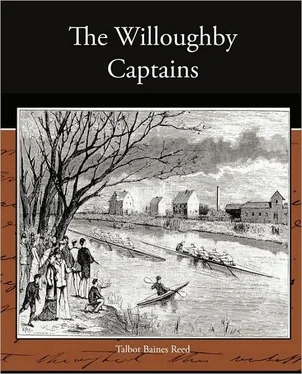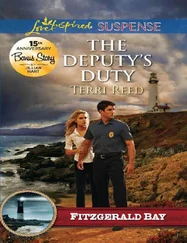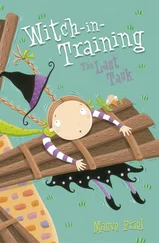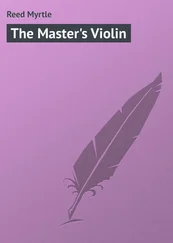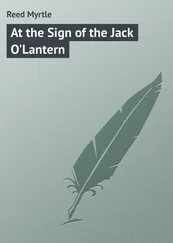The proceedings were regulated by certain rules handed down by long tradition according to which the business of the House was modelled as closely as possible on the procedure of the House of Commons itself. Every boy was supposed to represent some place or other, and marvellous was the scouring of atlases and geography books to discover constituencies for the young members. There was a Government and an Opposition, of course, only in the case of the former the “Ministers” were elected by the votes of the whole assembly, at the beginning of each session. They were designated by the titles of their office. There was a Premier and a Home Secretary, and a First Lord of the Admiralty, and so on, and great was the pride of a Willoughbite when he first heard himself referred to as the Right Honourable!
Everything that came before the house had to come in the form of a bill or a resolution. Any one anxious to bring up a subject (and there was nothing to prevent the junior fag bringing in a bill if he liked) usually handed in his motion early in the session, so as to stand a good chance of getting a date for his discussion. Later on, when more subjects were handed in than there were evenings to debate them, the order was decided by ballot, and due notice given every Friday of the business for the next evening.
Another feature of these meetings was, of course, the questions. Any one was entitled to question the “Government” on matters affecting the school, and the putting and answering of these questions was usually the most entertaining part of an evening’s business. Naturally enough, it was not always easy to decide to whose department many of the questions asked belonged, but tradition had settled this to some extent. The Home Secretary had to answer questions about the monitors, the First Lord of the Admiralty about the boats, the Secretary of State for War about fights, and so on, while more doubtful questions were usually first asked of the Premier, who, if he didn’t find it convenient to answer them, was entitled to refer the inquirer to some other member of the Government.
It need hardly be said that the meetings of the Willoughby Parliament were occasionally more noisy than dignified, and yet there existed a certain sense of order and respect for the “authority of the House” which held the members in check, and prevented the meetings from degenerating into riots. Another reason for the same result existed in the doctor, who sanctioned the Parliament only as long as it was conducted in an orderly manner, and did not offend against the rules of the school. And a final and more terrible reason still was in the fact that the House had the power of expelling a member who was generally obnoxious.
The session at Willoughby always opened on the Saturday after the May sports, and notice had been duly given that Parliament would assemble this year on the usual date, and that the first business would be the election of a Speaker and a Government.
The reader will easily understand that, under present circumstances, an unusual amount of interest and curiosity centred in the opening meeting of the school senate, and at the hour of meeting the big dining-hall, arranged after the model of the great House of Commons, was, in spite of the fact that it was a summer evening, densely packed by an excited assembly of members.
Most of the boys as they entered had stopped a moment to read the “order paper,” which was displayed in a prominent place beside the door. It was crowned with notices, the first three of which gave a good idea of the prospect of a lively evening.
1. “That the captain of the school be elected Speaker of this House.” Proposed by T. Fairbairn; seconded by E. Coates.
2. “That Mr Bloomfield be elected Speaker of this House.” Proposed by G. Game; seconded by R. Ashley.
3. “That Francis Cusack, Esquire, member for the Isle of Wight, be elected Speaker of this House.” Proposed, A. Pilbury, Esquire; seconded, L. Philpot, Esq.
The humour of the last notice was eclipsed by the seriousness of the other two. It had always been taken for granted that the captain of Willoughby was also the Speaker of the House, and a contested election for that office was without precedent. Now, however, the old rule was to be challenged; and as the members waited for the clock to strike six they discussed the coming contest among themselves with a solemnity which could hardly have been surpassed in Westminster itself.
The clock sounded at last; every one was in his place. The seniors sat ranged on the front benches on either side of the table, and the others crowded the benches behind them, impatiently waiting for the proceedings to commence.
According to custom, Riddell, as captain of the school, rose, and briefly proposed, “That Mr Isaacs, Senior Limpet, be requested to preside until after the election of a Speaker.”
The appearance of the captain to move this resolution had always been the signal for a loud ovation from the House. But this year the cheers were confined to a very small cluster of schoolhouse boys, and died away languidly in the general silence which prevailed elsewhere. Riddell’s motion being seconded and carried, Mr Isaacs, a pallid unintelligent-looking Limpet, rose and advanced to the chair at the end of the table usually occupied by the Chairman of Committees, and, knocking with a hammer once or twice, demanded silence. This being secured, he called out, “Mr Fairbairn!” and sat down.
Fairbairn’s speech was brief and to the point.
“I beg to move that the captain of the school be elected Speaker of this House. I don’t know that I need say anything in support of this.” (“Oh, oh!” from a voice opposite.) “The captain always has been Speaker, and Mr Riddell has already taken an active part in the business of the house and knows what the Speaker’s duties are. We all miss old Wyndham,”—(loud cheers)—“but I’m sure Riddell will be a worthy successor to him in the chair of this House.”
Coates having said, “I beg to second the motion,” Mr Isaacs put it to the meeting, and asked if there was any amendment. Whereupon Game rose, amid loud cheers from all quarters.
Game, as has already been said, was an honest fellow. He meant what he said, and generally said what he meant. He was fully convinced in his own mind that Willoughby would go to the dogs under the new captain, and therefore if Riddell had been his own twin-brother he would have protested against him all the same.
“I beg to move an amendment,” he said, “and it is this: That Mr Bloomfield be appointed Speaker of this House instead of Mr Riddell.” (It will be noticed by the way that when Willoughby sat in Parliament everybody was “Mr”) “And the reason I do so is because I consider Mr Bloomfield ought to be captain of the school instead of Mr Riddell. (Loud Parrett cheers.) I’ve nothing to say against Mr Riddell — (cheers from the schoolhouse) — except that I don’t consider he’s the right man in the right place. (Great applause.) He’s been made captain against our wishes,”—(“Hear, hear,” and “Oh, oh!”)—“and we can’t help it. But we’re not obliged to have him captain here, and what’s more, we don’t mean to! (Terrific cheers, especially from the juniors.) Mr Bloomfield’s our man. Only to-day he stopped a row in the Fourth in two minutes which Mr Riddell couldn’t have stopped if he’d stayed till now.” (Laughter, and cries of “Give him a clothes-brush!”) “The fellows all look up to Mr Bloomfield. He ran grandly for the school at the sports the other day, and licked the London fellow. (Here the enthusiasm became positively deafening.) What’s Mr Riddell done for the school? I should like to know. We want a fellow who has done something for the school, and, I repeat, Mr Bloomfield’s our man, and I hope you’ll elect him Speaker.”
Читать дальше
